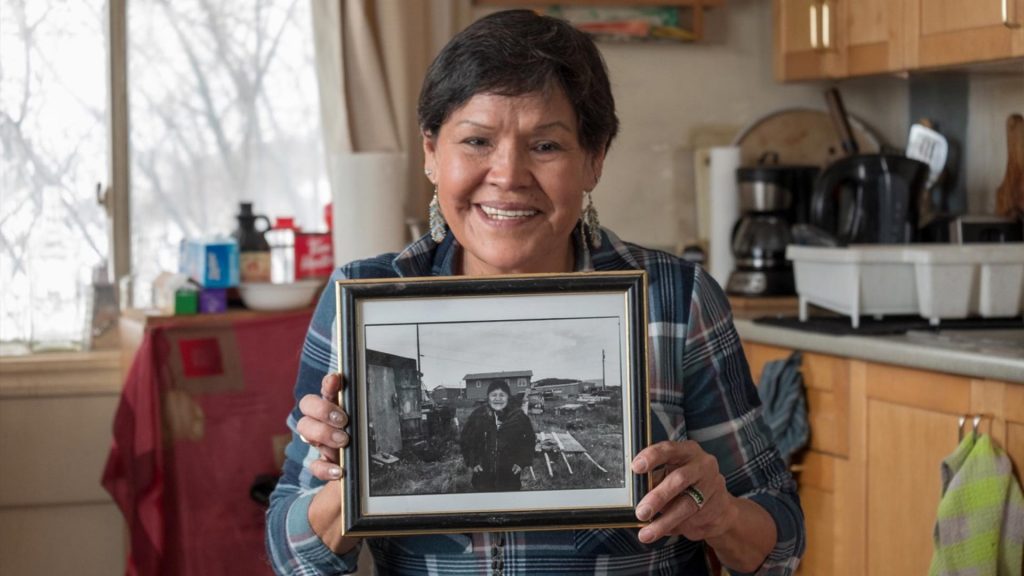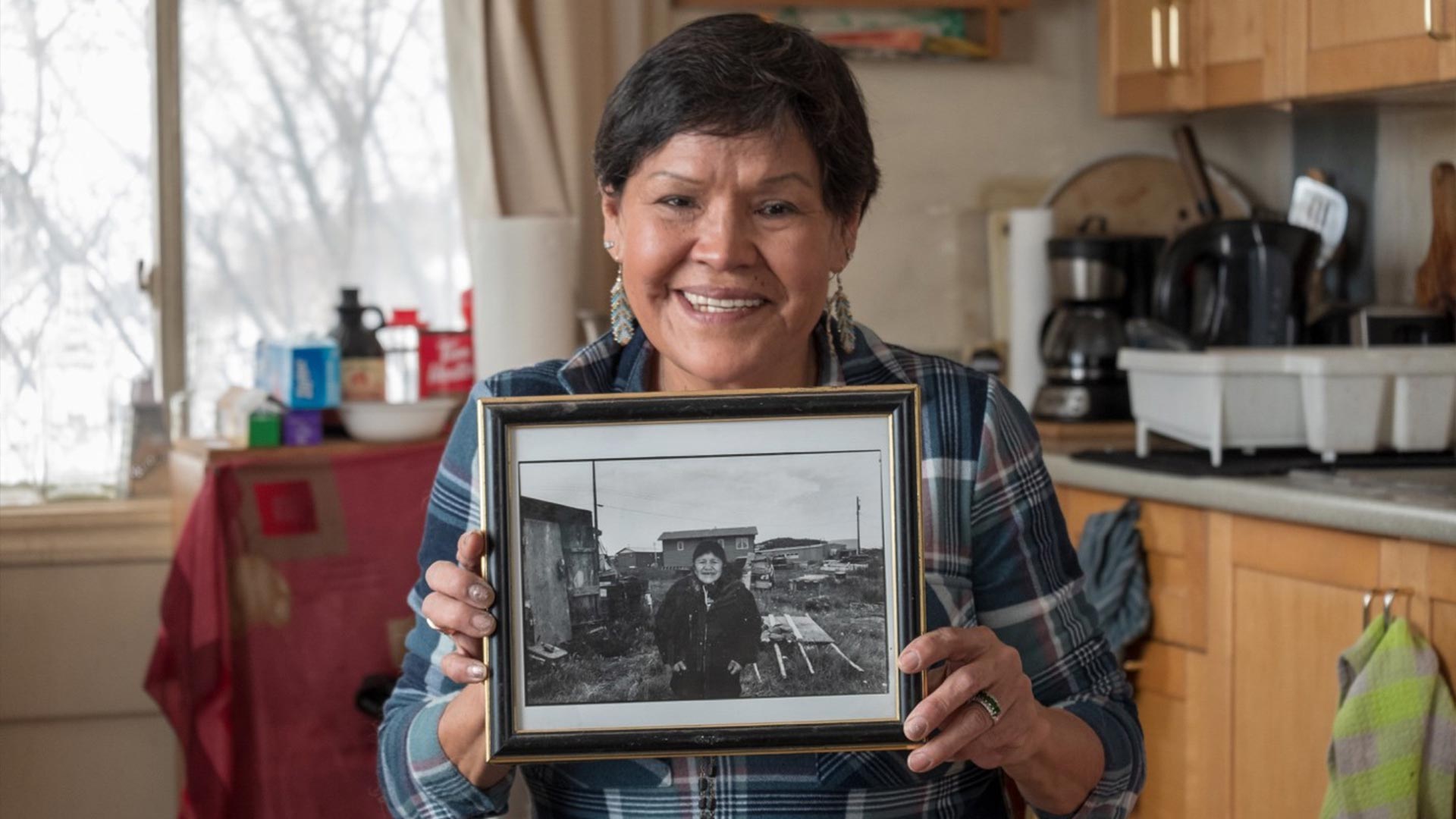
Theresa Harmon proudly shows off a photo of her mother Mary-Anne Crooked hand. Photo: Charlotte Morritt-Jacobs/APTN.
The distance between California and the Northwest Territories is immense – about 3,500 km.
But that didn’t stop Theresa Harmon, a ‘60s Scoop survivor from taking a chance on a lone Northwest Territories number listed under her family name.
It would take Harmon, whose birth name is Theresa Crooked hand, 37 years to find the truth. And it started with a phone call.
“It was something like, ‘Hi, my name is Theresa Harmon but my biological name is Theresa Crooked hand, and my husband just found you guys and I am just calling you guys to see if we might be related,’” she told APTN News. “I said I’m calling from California.”

Sure enough, Harmon found her family – that was 2008.
She was living in California – a world away – but decided it was time to make the pilgrimage to her homelands on the shores Tu Nedhé – Great Slave Lake the small dene community of Dettah, N.W.T.
During that trip, she acquired her child protection records that filled in the blanks on the traumatic events that had shaped her childhood.
Six months after Theresa was born she fell ill from bronchitis and her mother contracted Tuberculosis.
Her older siblings were already in residential school at the time and Harmon, too, would be taken from her family – scooped from Stanton Territorial Hospital in Yellowknife.
“The hospital told my mom that I had died of a brain tumour, and when I was old enough I asked ‘Do I have any mom or dad, brothers or sisters?’ I was told I didn’t have anyone,” Harmon said.
She was placed in an orphanage in Yellowknife and then foster homes in numerous communities.
“I was put in as the Wednesday Child, back in the day; they put my picture up. I was scared. I had no idea where I was going. All they kept saying was this family is nice and want to take care of you,” she said.
Harmon told APTN News she lives with the emotional scars from those years and the cultural disconnect at having been adopted by a white family in St. Thomas, Ont.
“I was told I was an Eskimo by the people in Ontario so I grew up thinking I was Eskimo,” she said.
She stayed with that family for 10 years until striking out on her own at 17.
In 2018, after her husband passed away and her children moved out, she packed her bags and moved to Łutselkʼe, on the east arm of the lake to be there for her elderly mother.
She was nervous about up and leaving.
“I thought what the hell did I get myself into? I didn’t have the support of my family and friends back home in California. Here it’s strangers and when they talk their language I didn’t understand,” Harmon said.
Her mother is now in a seniors’ residence but Harmon stayed to learn more about where she comes from.
She’s learned how to make fire, catch fish and identify berries.
“I still can’t sew or make bannock to save my life,” she said laughing. “But I’ve also learned a little bit of the culture and there is a certain amount of closeness in doing common activities.”
Adjusting to life in the isolated 300-person fly-in community has posed many challenges.
“I’ll be honest – my experience here hasn’t been the best. But for us 60 Scoopers coming in, I’m not the only one who has had this experience,” Harmon said.
“I’ve even had people tell me that I should give a DNA but you look at my mom and you can tell we’re related.”
While she finds comfort in exploring her roots, she wants more support for other ‘60s Scoop survivors.
“A lot of us just want to go to a healing center and they haven’t started that up. They have the money. That’s what most of us are waiting for,” she said.
Until then she’ll continue to share her story when she can.










